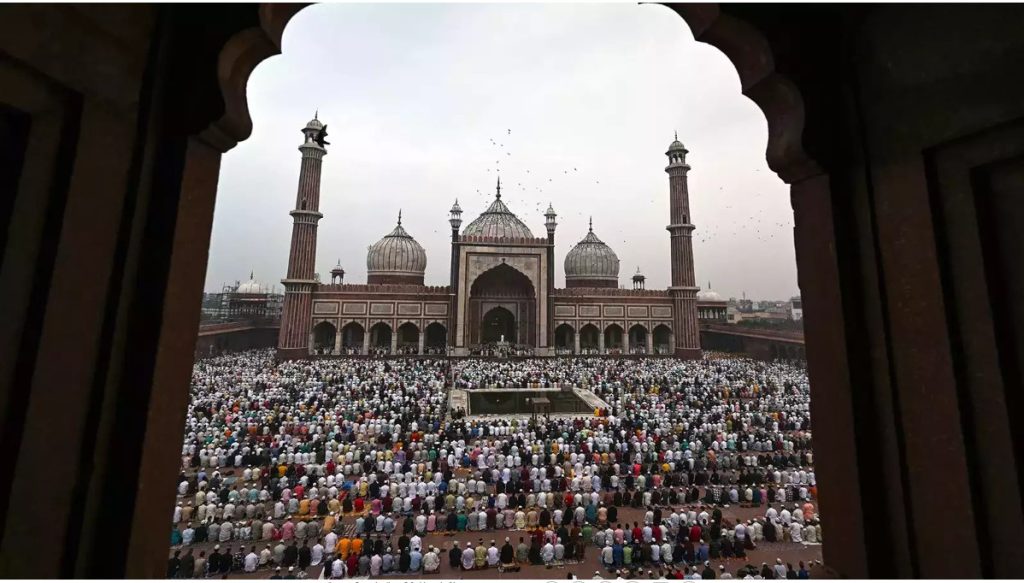It will mean reforming Hindu law too, not just Muslim and Christian personal law. For instance, Hindus currently have the right to form Hindu Undivided Families as a separate legal and tax entity, something without parallel in Islam or Christianity. This right has been used historically to evade thousands of crores of taxes and deny women equal property rights, and must be reformed by a UCC.
Ironically, most secular parties have historically dragged their feet on a UCC, whereas the Bharatiya Janata Party (BJP), a Hindu nationalist party, has lobbied for it. The Congress and Communist parties want to woo the Muslim vote bank. This represents opportunistic politics. They have avoided reforms because they think traditionalist mullahs will get them more Muslim votes than progressive Muslims who seek reform. The BJP aims to strengthen its Hindu vote bank by cracking down on a supposed Muslim privilege (though it is no privilege at all for Muslim women).
The Constitution is a secular document that forbids religious discrimination. It calls for enacting a UCC, giving such a code impeccable secular credentials. The BJP is on the secular side in this dispute, regardless of its motives.
Millions of Muslims have migrated to the US, UK, and other western countries…If they can live happily with modern civil laws in the US and Europe, why not in India too?
Congress says a UCC will hurt Muslims by forcing them to abandon their traditions. So what? Female infanticide was a traditional Hindu practice in Punjab and Tamil Nadu but is that any reason to support the traditionalists? Sati was an ancient Hindu tradition, but should we permit it?
Once, the Sharia governed not just personal law but the criminal law too of Muslims. Their fingers could be cut off for theft, and they could be stoned to death for adultery. Modern India has abolished these terrible practices and created a uniform criminal law. Why not a uniform civil law too?
Millions of Muslims have migrated to the US, UK, and other western countries with uniform civil laws. There, Muslims do not agitate for a separate personal law. If they can live happily with modern civil laws in the US and Europe, why not in India too?
After Goa ceased to be a Portuguese colony and became part of India, the secular Portuguese codes covering inheritance and property rights continued in force. Some mullahs claimed that since Goa was now part of India, Muslim personal law should apply in Goa too. But liberals, including a section of Muslim women, opposed any change, and the traditionalist demand for Sharia died down. If secular codes can apply to Muslims (and Hindus and Christians) in Goa, why not everywhere else?
India’s Constitution forbids discrimination on the basis of caste, gender, religion, or place of birth. Alas, traditions of all religious groups — Hindus, Muslims, Christians, Sikhs, Parsis — have historically included discriminatory practices. This constitutional approach needs to be given full force through a UCC.
However, it cannot be rushed through. The Supreme Court has already appointed a seven-judge bench to settle the clash of two principles, freedom of religion and non-discrimination in three cases — the prohibition of women of menstruating age from entering the Sabarimala Temple, the prohibition of Parsi women with non-Parsi husbands from entering fire temples, and female genital mutilation by Dawoodi Bohras.
No UCC should be drafted until we have the court’s verdict. But preparatory work should start.
Some lawyers have contested the court’s jurisdiction in these cases. So, the court has to first settle procedural and jurisdictional issues, and then deal with the substantial issues.
No UCC should be drafted until we have the court’s verdict. But preparatory work should start. The court is dealing with three specific disputes, but there are many more. We need an expert committee with the representation of all faiths to lay the ground for a UCC.
First, the committee should identify the disputed areas, and try to narrow the field. Next, it can classify the disputes into different categories that can be tackled through category-specific remedies. Finally, after the court delivers its verdict, the committee can help weave the verdict into category-wise clauses.
This will take time. For some, a UCC is an opportunity to bash minorities and appeal to majoritarian voters. For others, it is a secular exercise to implement the Constitution’s principles. Some lobbies will favour rushing through with a UCC before the 2024 election. The court should scotch any such move. A UCC is too important to be treated as a political football.


